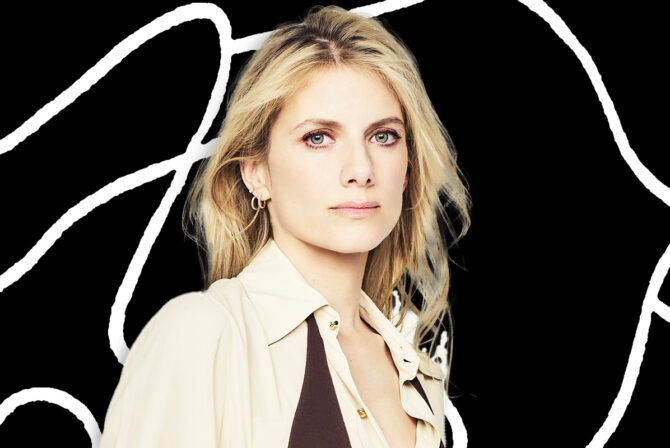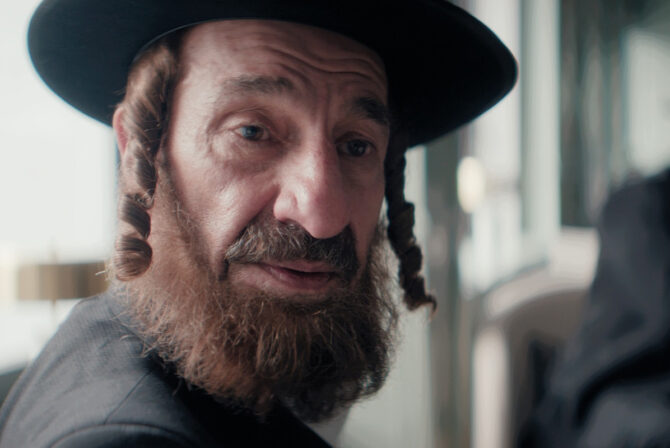“Ima, how come you’re not sounding the shofar?”
“Ima, why are we only setting the table for the four of us? We aren’t having guests for this holiday meal, even though we’re eating in the dining room?”
“Ima, why weren’t you in shul on the bima (pulpit) wearing your white robe and leading the service?”
Mah nishtanah…my sweet children…how is this year different from all other years we have ever experienced as a family?
Cancer. Parenting with cancer. The mother has cancer. The rabbi has cancer. So this Rosh Hashanah, the rabbi will stay home.
READ: How Sukkot Helped Me De-Clutter My Life
I have been involved in leading High Holiday services since before my bat mitzvah. As a young girl who loved to sing, my Cantor invited me to sing the Israeli song, “Al Kol Eileh” before the Israel bonds appeal and then years later, to lead the congregation in the haunting Kol Nidrei liturgical piece, “Yaaleh.” In high school, I led the Junior Congregation. By college, I was leading services in my home synagogue and in congregations all over the eastern seaboard. And then each year of rabbinical school, I was in a different community, sometimes leading the prayers and speaking—basically doing it all. I think it’s fair to say that I have been on the bima consistently on the High Holidays for at least 26 years.
This year will be different. I am just recovering from the “summer of yuck”—six rounds of grueling chemotherapy treatment for non-Hodgkins lymphoma that was discovered at a routine doctor’s appointment in late April. While, thank God, my health is slowly returning, and I am eager to step back into my life as a full-time mother, full-time rabbi, full-time community partner, etc., my brain is slower to recover and my energy level is still very low. So in consultation with my rabbinic colleagues and our synagogue board, we decided to bring in a rabbi (my incredible predecessor in this position happens to be available) to lead the High Holiday services that I would have led this year.
I am thrilled to be relieved of these responsibilities.
I am scared beyond belief to be relieved of these responsibilities.
Rosh Hashanah and the rabbi stayed home.
READ: A Collective Confession for Parents on Yom Kippur
I know it’s the right decision for me—for my health (can’t have 2000 congregants hug me right now!), for my sanity (I could not have spent this summer writing sermons like I usually do), and for my family (I’ve suffered through chemo so I could be with them… so I want to be with them!). But it is not in my nature to be a Jew-in-the-pew, to sit back and let others lead me in prayer, or worse, as I suspect will happen, to just sit at home and try to open a machzor and pray on my own. I laugh now anticipating that when I do try to pray on my own, I will be tempted to call out the pages to my non-existent congregation, just because I am so conditioned to do so. Perhaps my children’s stuffed animals will rise when I lift my arms in the familiar rabbinic fashion!
But this is not about me, and I know that as sad as I will be to stay home for the holidays (with perhaps a quick sneak through the back door of the sanctuary on Yom Kippur to bring greetings but not be hugged), the important people to consider are my children. They already know that things are so different: Ima doesn’t have hair; Ima goes to the hospital for five days at a time to get medicine put into that funny bump on her chest (the port); Ima comes home sick and tired and has lots of doctors appointments and eats ice cream for days on end; Ima doesn’t go to shul.
This year, I’ve learned to appreciate my blessings. I’ve worked hard to not only count my blessings but to make them count. I want to experience and engage in the High Holidays with my young children in the way that’s right for them. Instead of hosting large meals late at night with people who may be strangers to my children, I want to sit around our dining room table (reserved for holiday meals in general) and really ask my children what they are thankful for and how they want to change in this coming year.
Instead of rushing off to run services, leaving my husband and children hours before the family programs begin, I want to help them get dressed in their nicest clothes, clip ties on their shirts (that are likely to come off before they’ve walked to the shul) and ask them what it means to get dressed for shul on these special days.
READ: What If We Chose Generosity Over Judgment?
And this year—just this one year, I hope and pray—instead of being the somewhat untouchable one up on the bima, I want to be the one to welcome them back into our home after services, with hugs, warm challah, apples and honey, and a deep appreciation that we have all reached this special, momentous, healthy occasion.
And I will pray that good health continues for us all, that my children’s wonder and questions continue to flow even when, God willing, I return to my routine work and life, and that despite the fact that this Rosh Hashanah this rabbi stayed home, that there will be many more in which we find balance to experience God’s blessings in living an engaged and active Jewish life, together.
When is Rosh Hashanah 2015? Click here to find out







